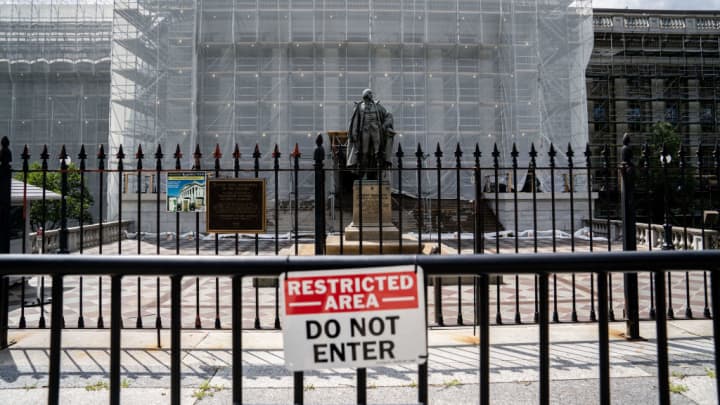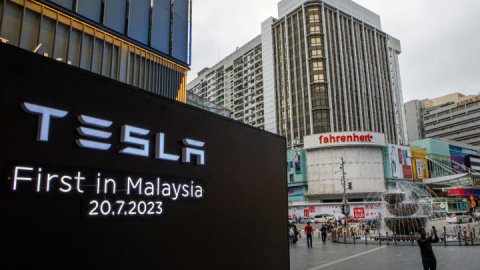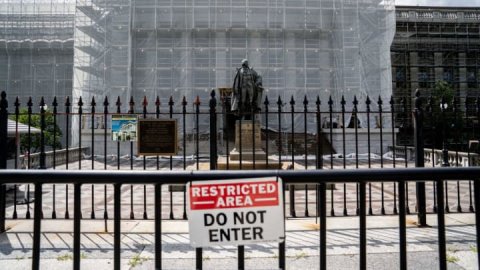
This report is from today's CNBC Daily Open, our new, international markets newsletter. CNBC Daily Open brings investors up to speed on everything they need to know, no matter where they are. Like what you see? You can subscribe .
Wobbly markets
Tuesday after a winning Monday, though the Nasdaq Composite still managed to eke out a small gain. Asia-Pacific markets were mixed Wednesday. Japan's Nikkei 225 climbed around 0.3% as the country's business activity expanded at a faster pace in August than July. However, the Shanghai Composite fell 0.68% as China's economic woes continued weighing it down.
Malaysia's electric vehicles ambitions
Malaysia managed to convince Tesla to set up its regional headquarters in the country, the first deal under the country's Battery Electric Vehicle Global Leaders initiative. But
in the global electric vehicle supply chain. "EV happens to be our priority," Malaysia's Prime Minister Anwar Ibrahim told CNBC's Martin Soong in an exclusive interview.
Budget-busting bacon
year to date, surging from 131.59 cents per pound in January to 270.89 cents at the end of July. That's just 9 cents away from its all-time high in August 2021. Analysts think the increase's partly because of
, which came into effect July 1.
Discharge of Fukushima water
roughly 1.3 million metric tons of treated radioactive water from the tsunami-hit Fukushima nuclear plant into the Pacific Ocean. China accused Tokyo of being "extremely selfish and irresponsible," but scientists and the International Atomic Energy Agency said the radioactive content in the water is
.
[PRO] Stocks undaunted by a slowdown
Neither sustained high interest rates nor a slowdown in global growth can halt the trajectory of this sector, which
compared with a year earlier. These are the two stocks that fund managers recommend buying to harness the "secular story, the long-term story" of the sector.
At 4.332%, the 10-year Treasury yield's at its highest in 16 years. That represents a risk-free, long-duration asset with relatively high returns, weighing on the stock market. The logic is: Why should traders invest in stocks that may not return as much, or just slightly more, when there's an asset class that guarantees a 4% return?
As Rupert Thompson, chief economist at Kingswood Group, told CNBC, "Cash is now yielding 5% in the States, short-dated bonds are yielding 5% plus, so equities for the first time in a long time have actually got some real competition."
Typically, stocks — if they do well — tend to return more than a risk-free asset, precisely because it isn't certain stocks will rise. That's called the equity risk premium, a return that's supposed to compensate stock investors for the chance that they might lose money. But, as , the premium is below 1% now. Historically, it's been between 2% and 4%. In other words, stocks are looking much less attractive than Treasurys.
Another potential issue that could crop up with high Treasury yields is that it could make the Federal Reserve's job tougher. Apollo's chief economist Torsten Slok warned that "long rates moving up is indeed a bit more challenging, in terms of getting the economy to that soft landing." While "the Fed can control short rates," long rates going up can introduce "significant risk" to the economy, such as the recent and quantitative tightening.
It wasn't a surprise, then, that stock markets fell Tuesday. The slid 0.3% and the lost 0.5%. But the edged up 0.06% to avoid two consecutive days of losses — despite retreating 2.9% on the eve of its earnings report.
But don't panic. "We're in the pullback phase of a bull market," said Adam Turnquist, chief technical strategist at LPL Financial. That is, it's still too early to be bearish on stocks. Indeed, Yardeni Research president Ed Yardeni told CNBC he thinks "the market's going to hang in there" — and "a year-end rally will bring the S&P 500 back to something like 4,600." That implied increase of almost 5% in stocks — while not certain — would, however, certainly give Treasurys a run for their money again.




